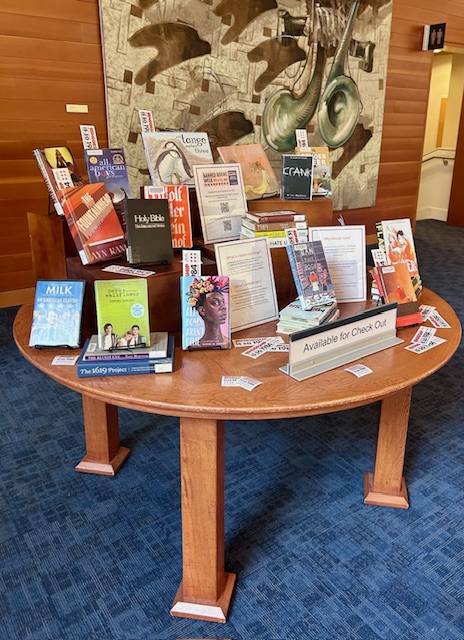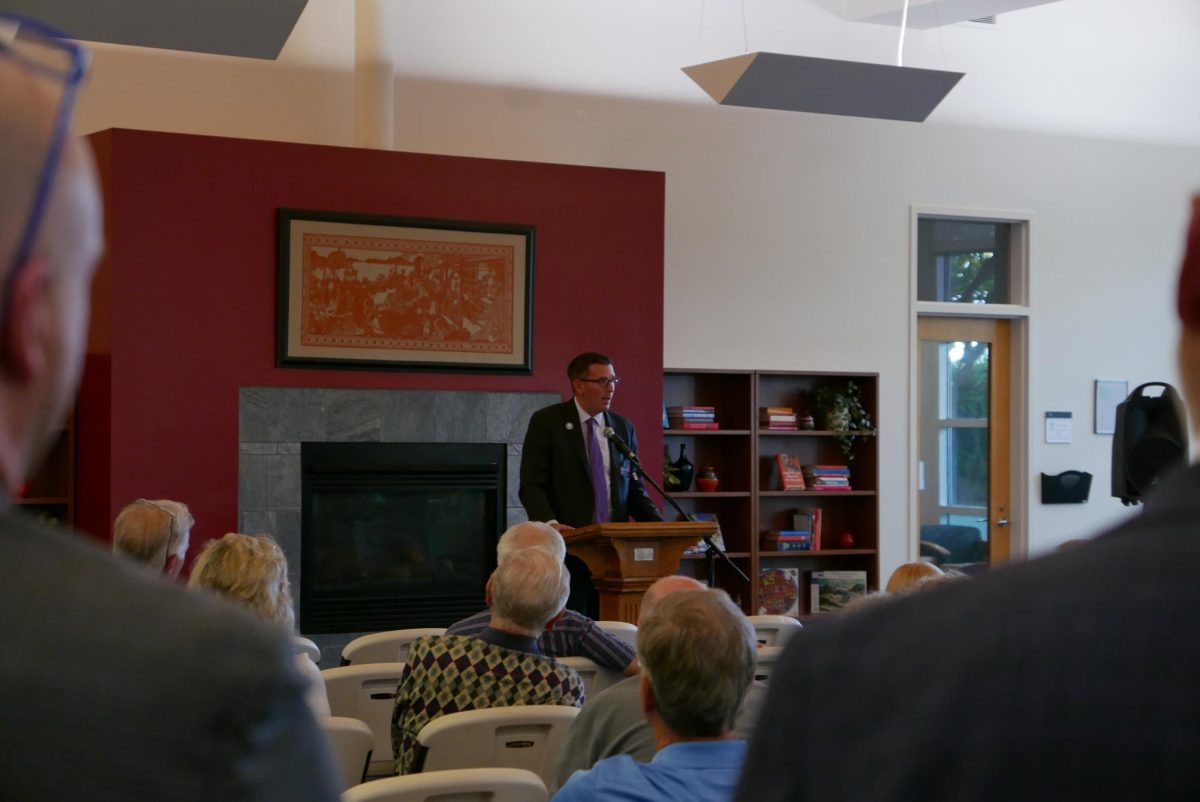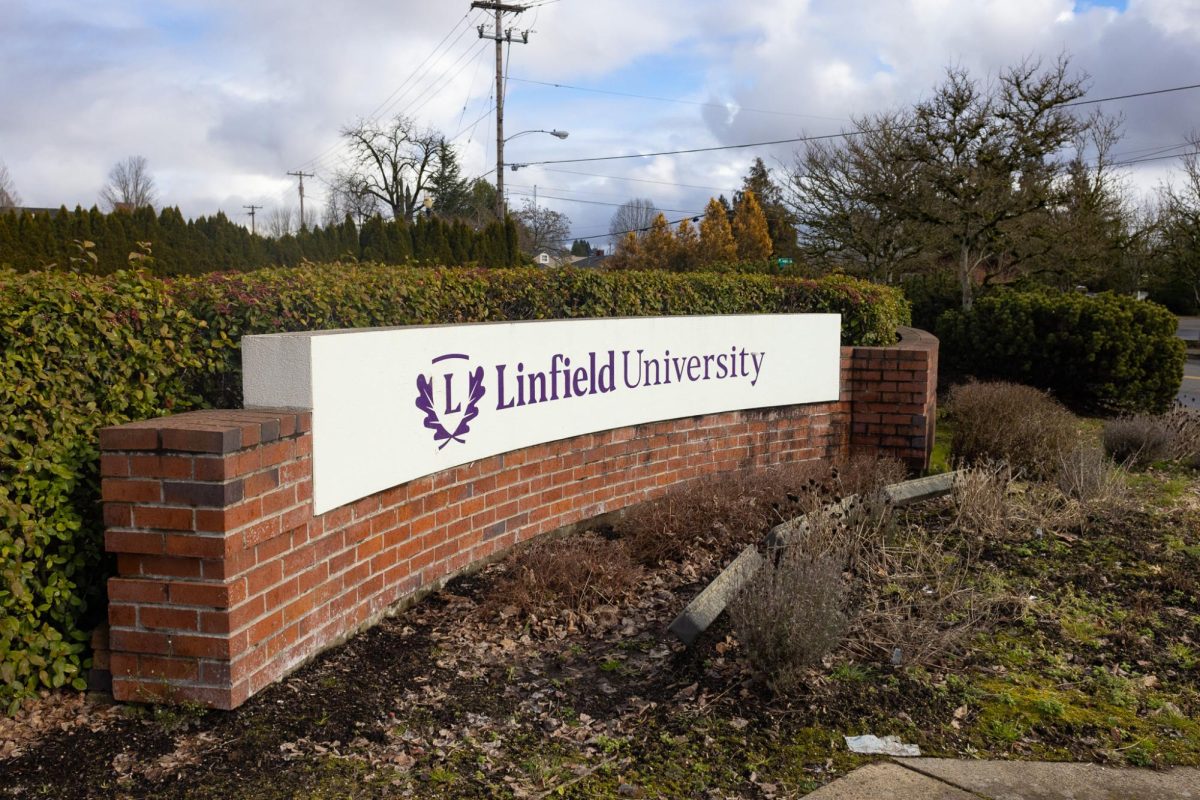The Portland Business Journal recently recognized three Linfield graduates in its 2013 “Forty under 40” list. The journal honors successful businesspeople, entrepreneurs and executives who are important to Oregon’s future.
“It’s nice to be recognized,” said Evan Wilson, 2001 graduate and senior research analyst at Pacific Crest Securities. “It’s great that we had there Linfielders out of 40 people on the list. It shows the quality of the Linfield education.”
Wilson is a senior stock and research analyst for Pacific Crest Securities, an investment bank for technology in the Internet and video game industries.
“I work for an investment bank that provides research to institutional investors. With the Internet and all the wonderful content that it brings forward, it can be hard to break through the clutter,” Wilson said. “I’m a stock analyst so I track the Internet and video game industries. I have to follow the health of [the economy] to interpret it and the trends and their effect on my industry.”
Also recognized was Lincoln Bach, who graduated from Linfield in 1996 and is now the chief financial officer at GreenWood Resources, a global timber investment company that buys land to develop sustainable tree farms.
“A big part of our company is green energy and turning woody mass into a power source and a heating source,” Bach said. “It’s a mature market in Europe and South America. Hopefully, it gains traction in the U.S. lumber market and as a bioenergy source.”
The third of the alumni recognized was Mary Lago, who graduated in 1997 and is now a vice president and relationship manager at Washington Trust Bank. She helps business owners and individuals with financial planning and investment management, as well as advises charity foundations in the Pacific Northwest. Lago is active on many community organization boards, such as the Estate Planning Council of Portland and the Oregon Health and Science University Foundation.
Lago was unable to be reached for an interview because she was on vacation.
Linfield’s professors and programs helped these three individuals get where they are today.
“I was an accounting major, so I went straight into public accounting right out of college,” Bach said. “I had some great professors, like Mike Jones. Linfield has a really strong program and I was well prepared. It was a good way to get hands-on knowledge instead of getting lost in the shuffle of a bigger university.”
Wilson used his many opportunities and activities as a way to network and break into his field.
“I had an opportunity for a wide variety of things. I played basketball, I was on KSLC, student senator and I wrote for the Review. I did a lot of different activities that introduced me to people and developed my ability to write and talk to people,” Wilson said. “It was an opportunity that I might not have gotten from a bigger school. Everyone tried to get me involved, and I think that’s important.”
In college, Bach and Wilson both knew what they wanted their careers to look like. Lincoln, who was public accounting and finance driven, was able to use his degree to do what he loves.
“When you’re picking your degree, obviously pick what you enjoy doing and balance it with something practical that you can use when you get out of school,” Bach said. “Realize when you first get out of college you’ll probably have to work pretty hard and build your relationships. Find something you can enjoy and succeed at. It’s a hard balance.”
Wilson has found his success through the connections he made while at Linfield.
“Meet as many people as possible. Find ways to get involved with the field you’re interested in before you leave. It’s the experience that matters, especially that you get from internships. You get more from that than what you get in class,” Wilson said. “I’m a firm believer that it’s the relationships you create that will get you into your industry. Networking is the most important thing you can do as a college student.”
If Wilson has learned anything during his career, it is that technology has a profound impact on everyone and their industries.
“We’re starting to see computer scientists replace human traders. More and more clients are using algorithms to make trading decisions rather than fundamental research,” he said. “That trend of more trade put forth by computers than humans is shaping industries.”
In recent years, the economic recession has made being in business difficult. But according to Bach, things are getting better than they were five years ago.
“We’ve experienced the down cycle of the recession, especially in the housing market. When housing goes down it affects the [timber] industry quite a bit,” he said. “There’s more optimism today. We were on the cusp of the recession hitting, and now we’re on the other side of the downward trend. Things are picking up again.”
Kelsey Sutton
Managing editor
Kelsey Sutton can be reached at
[email protected].






